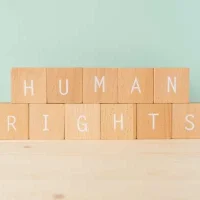Deadline: 21 May 2019
The European Union (EU) is seeking proposals to strengthen the contribution of civil society organizations in youth employment and social protection.
This call for proposals has the following specific objectives:
- Support Civil Society Organization (CSO) actions to promote the rights of young people to decent and sustainable employment and their integration into the labor market
- Support the involvement of civil society in social protection issues.
Priorities
This call for proposals has the following priorities:
- For lot 1: Youth employment
- Support for the training and promotion of the qualification of young people by ensuring a better link between training and the needs of businesses and other structures providing employment.
- Support for existing job creation initiatives (including self-employment) to strengthen and expand them (funding of concrete initiatives / stunts).
- Support for dynamics aimed at creating a network of thematic actors to ensure monitoring and advocacy to initiate reforms for education, inclusion and empowerment young people.
- For lot 2: Social protection
- Contribute to analysis, action research, monitoring, evaluation, transparency, accountability, debate, advocacy and promotion of the impact of social protection policies. This lot is not aimed at financing the provision of social services / social protection in itself, but actions or analyzes contributing to the strengthening of public policies in this area. The notion of social protection is considered here in a broad sense, whether it concerns the different forms of social security / social assistance or social assistance.
Funding Information
Any grant requested under this Call for Proposals must be between the following minimum and maximum amounts:
- Lot 1 :
- minimum amount: EUR 800,000
- maximum amount: EUR 850 000
- Lot 2:
- minimum amount: EUR 350 000
- maximum amount: EUR 550 000
Eligibility Criteria
- Lead Applicant
- To be eligible for a grant, the lead applicant must:
- be a legal person and
- have no profit and
- belong to one of the following categories of organizations: civil society organizations, employers’ or sectoral associations or professional trade unions and
- be an organization under Senegalese law or be established in Senegal; or
- be established in a Member State of the European Union or a Member State of the European Economic Area (Iceland, Liechtenstein and Norway).
- For British applicants: Please note that the eligibility criteria must be respected throughout the duration of the grant. Unless otherwise specified in the sectoral eligibility rules, in the event of the withdrawal of the United Kingdom from the European Union during the grant period in the absence of an agreement with the EU guaranteeing in particular that the applicants of the Kingdom The United Kingdom continue to be eligible, applicants will no longer receive funding from the EU (while continuing, if possible, to participate) or they will be required to leave the project on the basis of Article 12.2.e of the General Conditions of the EU. grant contract allowing the termination of the grant contract (modification of the beneficiary’s legal situation).
- be directly responsible for the preparation and management of the action with the co-applicant (s) and the affiliated entity (ies) and not act as an intermediary
- To be eligible for a grant, the lead applicant must:
- Co-Applicant (s)
- The co-applicants participate in the preparation and implementation of the action, and the costs they incur are eligible in the same way as those borne by the lead applicant.
- Co-applicants must meet the same eligibility criteria as those applying to the lead applicant itself.
- If the applicant is not an organization of civil society, employers’ or sectoral associations or professional trade unions of Senegalese origin, the co-applicant must be a local CSO (Senegalese).
- Affiliated entity (ies)
- The lead applicant and his co-applicant (s) may act with one or more affiliated entities.
- Only the following entities may be considered affiliated to the lead applicant and / or the co-applicant (s):
- Only entities that have a structural link with the applicants (the lead applicant or a co-applicant), in particular a legal or capital link.
- This structural link mainly encompasses two notions:
- control, within the meaning of Directive 2013/34 / EU on annual financial statements, consolidated financial statements and related reports of certain types of undertakings:
- Entities affiliated with an applicant may therefore be:
- entities controlled directly or indirectly by the applicant (subsidiaries or first-tier subsidiaries) or controlled by an entity itself controlled by the applicant (sub-subsidiaries or second-tier subsidiaries), and this is valid for other levels of control;
- entities directly or indirectly controlling the applicant (parent companies). Similarly, they may be entities controlling an entity controlling the applicant;
- controlled entities, directly or indirectly, at the same level as the applicant (sister companies).
- Entities affiliated with an applicant may therefore be:
- membership, that is, the applicant is legally defined as, for example, a network, federation or association of which the proposed affiliated entity is a member, or the applicant is a member of the same entity (for example, a network, federation or association) than the proposed affiliated entity.
- control, within the meaning of Directive 2013/34 / EU on annual financial statements, consolidated financial statements and related reports of certain types of undertakings:
- The lead applicant and his co-applicant (s) may act with one or more affiliated entities.
How to Apply
In order to apply for the grants, applicants have to register themselves in PADOR, an on-line database via given website.
For more information, please visit https://bit.ly/2HYNpeO and download the guidelines.









































